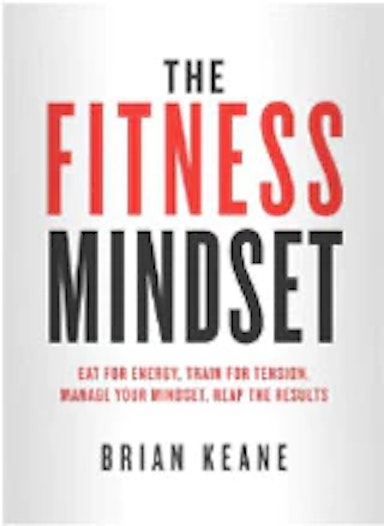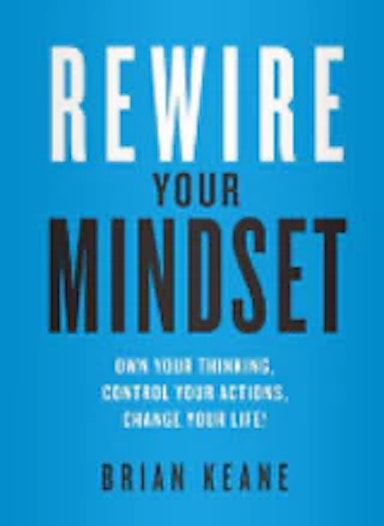Linking pleasure and pain to the right things is the key to losing body fat for good
- By Brian Keane
LINKING PLEASURE AND PAIN: HOW I GAVE UP GLUTEN
When I was about 13 years old, I started to get really bad stomach discomfort every time I ate. My diet largely consisted of bread, pasta, biscuits, cereals and meat. After about 6 months of getting sick after every meal, I learnt that I had a very severe reaction to any wheat or gluten based foods. The association of getting sick is so ingrained in my nervous system, that even the thought of eating bread now turns my stomach.
15 years later, I still haven’t eaten gluten and I still have that same reaction when I think about consuming that food. This got me thinking, what if we could train our body to have that same reaction to foods that weren’t supporting our fitness or physique goals? I thought if I could somehow have that same reaction to fast food or sugar, then I would give myself a massive advantage in my fitness life.
Can our pain and pleasure linkages produces a processional effect in our lives? You bet. The negative neuro- association for gluten foods (which at 13, included pizza and cookies) affected many of my best decisions in life.
It improved my sporting performance which influenced who I hung out with at school. It determined how I learned to get pleasure (I started doing push ups and pull ups in my bedroom as opposed to eating cookies and watching TV) and because of the physical changes, I started to read magazines and books dedicated to fitness. A lot of the knowledge on my platforms and the overall direction of my life can be traced back to cutting wheat and gluten at 13 years of age and its compound effect over 15 years. I soon became the guy in school everybody came to when they had fitness or diet questions. I also never took drugs or drank alcohol in my teens because I read in the magazine how it would affect my fitness goals, thus I stayed away from it until I went to college.
What is my message here? Simply this: if we link massive pain to any behaviour or emotional pattern, we will avoid indulging in it at all costs. We can use this understanding to harness the force of pain and pleasure to change virtually anything in our lives. The more consistent we are to it, the bigger the change (this post can be seen as an outcome of the compound effect over time of a negative neuro association to gluten).
“If you are distressed by anything external, the pain is not due to the thing itself but to your own estimate of it; and this you have the power to revoke at any moment” Marcus Aurelius
LINKING PAIN TO FOODS!
One of the problems with sugar and fast food is that we have a massive pleasure feeling associated with it and a tremendous pain associated it with quitting it. If we can somehow flip these feelings, that can be the secret to unlimited success.
One of the main things that makes human beings special is our marvelous ability to adapt, to transform, and to manipulate objects or ideas to produce something more pleasing or useful. And foremost among our adaptive talents is the ability to take the raw experience our lives, things that have happened to us, relate it to other experience, and create from it a new tapestry of meaning that’s different form everyone else’s or form your past meaning.
I remember one of my first nights out in college; I wasn’t a big drinker until I went to third level (where I quickly made up for the years missed); but on this particular night, my house mate at the time, came home with a litre bottle of Sambuca. Now if you have ever drank Sambuca or Tequila, you probably have an idea where this story is going. I drank so much Sambuca (we finished the bottle between two of us) and ultimately, being the most intoxicated I have ever been, spent the entire night (and next day) getting sick. That was nearly 10 years ago and the mere smell of that drink still makes me leave a room. That’s the power of neuro association and the pain/pleasure principle with foods and drinks.
Have you ever seen someone who went from being really over weight or obese to being really fit and healthy? It happens all the time! People have built businesses and become celebrities from their before and after pictures. From the outside, it’s as if these people have flipped a switch and have gone from eating pizza and soda every night to morning runs and healthy meals every day. What happened? They’re still the same person, physically they may have changed but essentially, they’re still the same person. So what did it?
Their ‘why’ changed and thus their pain/pleasure principle changed. It may have been nasty words from a friend, family member or ex-boyfriend or girlfriend that now switched the feelings of eating pizza and drinking soda from pleasure to pain. I have worked with people who still remember the ‘you’re too fat to do that mate’ or ‘I don’t date fat chicks, love’ that initially kick started their fitness journey.
“I had a boyfriend who told me I’d never succeed, never be nominated for a Grammy, never have a hit song, and he hoped id fail. I said to him, “someday, when we’re not together, you are not going to be able to order a cup of coffee at the f*****g deli without hearing or seeing me” Lady Gaga
Through the power of our wills, then, we can weigh something like the physical pain of starvation against the physical pain of surrendering. We can create a higher meaning but if we fail to direct our own associations to pain and pleasure, we’re living no better than animals, continually reacting to our environment, allowing whatever comes up next to determine the direction and quality of our lives.
Our behaviour, both conscience and unconscious, has been rigged by pain and pleasure from so many sources: our parents, teachers, friends, media, TV, books and the list goes on.
You may not know precisely when programming and conditioning occurred. I largely didn’t understand my pain association link to gluten until I reflected on it for the writing of my book although I had unconsciously did the same thing with all fast food (which originally I put down to just having knowledge of what was happening when I consumed it, which is essentially the same thing, I as I linked the pain). I cannot emphasise strongly enough that what you link to pain and pleasure will not only determine your fitness and health aspect of your life but it will shape your entire life!
As a review on your own eating patterns, can you recall experiences that formed your neuro associations and thus set in motion the chain of cause and effect that brought you to where you are today? What meanings do you attach to certain foods? If you love fast food, is it because your parents brought you for ‘fast food’ as a child when you were ‘good’ – dig deeper, understanding the cause and why we have certain links to certain foods (besides the hormonal and addictive response say sugar) can go a long way in help you re-wire you eating patterns to support your fitness goals.
Though we’d like to deny it, the fact remains that what drives our behaviour is instinctive reaction to pain and pleasure, not intellectual calculation. Intellectually, we may believe that eating fast food is bad for us, be we’ll still reach for it. Why? Because we’re not driven so much by what we intellectually know, but rather by what we’ve learned to link pain and pleasure to in our nervous system.
It’s what Tony Robbins calls our ‘nuero associations’ – the associations we’ve established in our nervous system that determine what we’ll do. Although we like to think that as an evolved species, its intellect and the frontal cortex section of our brain that influences our major decisions, in most cases, it’s our emotions – the sensations or feelings that we link to our thought. Thoughts become things. If you hijack your thoughts and find out ‘why’ you have linked a certain food to pleasure (foods that are not supporting you), then you go a long way in re-wring that thought and thus emotion linked to it. It’s like digging up a new tree. The older the tree, the deeper the roots, the harder it is to pull up but once you pull it up you can plant a new seed (new link to pleasure) and let a new tree grow.
WHY YOU CAN’T STAY ON DIET
Many times we try and override our pain/pleasure system. For a while we stick to our diet because our trainer or a book told us to; but eventually it never sticks. You need to dig deeper and figure out why. Why have you linked certain foods to certain feelings? Its cause and effect. If we don’t nip the problem at the cause (the emotion), you can’t stop the effect (eating that food). Remember this next sentence and write it down if you have to because if this resonates with you, it could plant that seed that changes your entire life!
In order to change, you must link pain to your old behaviour and pleasure to your new behaviour AND condition it until its consistent!!
This sentence is shaped and moulded my entire life. I did this on subconscious level for years; it allowed me to excel in my sports and build a physique that allowed me to be featured in magazines, fitness websites and opened countless other doors. More recently it’s allowed me to build a successful business (I now link pleasure to early morning because I am eternally grateful for having the opportunity to live my life on my own terms) but the same principle can be applied to any aspect of your life. Remember, we will do more to avoid pain than we will to gain pleasure. Going on a diet or giving up fast food overrides our pain in the short term by pure willpower but never lasts simply because we still link pleasure to those foods or even more strongly, pain to giving up those foods.
The truth is that we can learn to condition our minds, bodies and emotions to link pain and pleasure to whatever we choose. By changing what we link pain and pleasure to, we will instantly change our behaviours.
For this change to be long term, we’ve got to link pain to eating those foods so that we no longer even desire them. If you can link pain to those foods and link pleasure to the feelings and emotions associated with foods that nourish you and make you feel more energetic and healthier, then that’s the key to long term success.
Written by Brian Keane 29:9:2016


